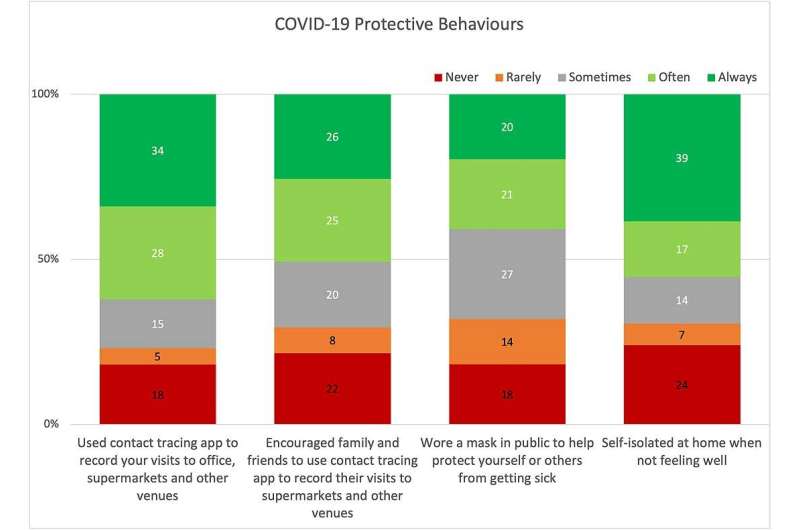
Research from Massey University shows an overwhelming majority of New Zealanders support regional (94 percent) or national lockdowns (81 percent) if there are new COVID-19 infections in New Zealand.
In a national survey conducted by Senior Lecturer Dr. Jagadish Thaker (JT) of the School of Communication, Journalism & Marketing in February and March 2021, with nearly 1100 respondents, three in four Kiwis (77 percent) said they had used the contact tracing app to record visits to the office, supermarkets and other venues.
Dr. Thaker says the results show why effective communication from trusted sources continue to matter during and after vaccination.
New Zealand has been one of the few countries in the world that has successfully contained COVID-19 disease so far, ranking as the best country to handle a pandemic for five consecutive months.
Dr. Thaker says while border controls have been pivotal in the success of New Zealand’s COVID-19 elimination strategy, public attention to and engagement with advice from health experts and government has been equally important, most recently during lockdowns in February-March 2021.
Seventy-one percent of survey respondents said they had encouraged family and friends to use the contract tracing app. Seven in ten (70 percent) said that they have self-isolated at home when not feeling well, an increase from 61 percent who said the same in a similar national survey in June-July 2020.
About seven in ten (68 percent) said they wore a mask in public to help protect themselves or others from getting sick. This is a sharp increase from the June-July 2020 survey where about half (48 percent) said they sometimes, often, or always wore a mask when in public spaces.
“The prevalence of COVID-19 protective behaviors and support for government measures is indicative of the effectiveness of excellent communication from trusted health experts and government sources. A majority of Kiwis rate that the government communication on COVID-19 as simple, clear, empathetic, kind, trustworthy—key principles of effective public health communication,” Dr. Thaker says.
Communication key to reaching vaccine skeptics
As the vaccination campaign shifts from border and essential workers to the general population, Dr. Thaker says it is important to listen and address concerns of a quarter of New Zealanders who are either hesitant or skeptic to a COVID-19 vaccine.
“During the last national survey in June-July 2020, there was a lot of uncertainty about COVID-19 vaccines and not surprisingly, a quarter of the public were hesitant to take a vaccine.”
“However, a year after several scientific studies on safety, efficacy, and importance of COVID-19 vaccines, and government’s approval for administration, 12 percent are “unsure, but leaning towards no,” while another 10 percent answered “no, definitely not” to taking a vaccine in the February-March 2021 survey.
To reach the COVID-19 vaccine hesitant and skeptics, Dr. Thaker says it would require more tailored campaigns, focussing on messages that addresses their concerns, through mediums and messengers they trust.
The Director-General of Health Dr. Ashley Bloomfield suggested that alongside vaccination, New Zealand might need to exist at something like alert level 2.5 as the border opens. Public health agencies, such as the Centers for Disease Control and Prevention, say that even if people are fully vaccinated, they should continue to follow some preventive behaviors to protect themselves and others. “The science on COVID-19 vaccine efficacy on new variants is emerging and we may need to continue with protective behaviors even as New Zealand rolls out its largest vaccination campaign,” Dr. Thaker says.
About two-thirds of Kiwis (64 percent) are concerned that they or a member of their family or a friend will become infected with COVID-19. Many continue to report mental health and economic impacts, even after a year into pandemic recovery, with Māori, Pasifika, and Asian New Zealanders reporting disproportional burden due to COVID-19.
Source: Read Full Article